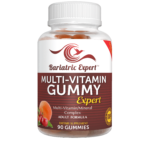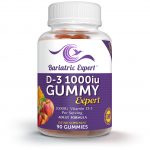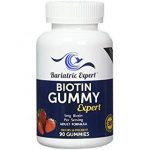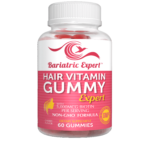Nutritional buzz-word Protein
… and how to increase it in your diet.
“Protein” is the buzzword when it comes to nutrition today. We hear it everywhere we turn, “eat more protein”.
Makes total sense but how difficult is it really to eat more protein?
I pretty much hit my goals, or so I think I do. Yesterday I did a little count in my head of how I was doing throughout the day. I am not overly obsessed with counting grams of protein. I just make it a part of my regular diet eating a portion of protein at each meal.
I started my day with coffee and a splash of cream = 0 grams of protein.
I ate at noon. I had tahini bread with two slices of bacon, avocado and tomato = 17 grams of protein.
I made a shake at 3 pm = 10 grams of protein.
For dinner, I made a skillet lasagna for the family. I had a bite or two of the noodles but I focused on the meat sauce and cheese mostly and I had a salad on the side = 10 grams of protein.
That means I was under 40 grams of protein for the day and I also had a workout that required lifting heavy weights for a moderate amount of time.
Should I panic? Absolutely not. Our bodies know exactly what to do. Today I will just go along my merry way and make sure to include a source of protein at each meal. It becomes a habit.
I don’t eat plates of pasta or rice-based dishes or large sandwiches on a regular basis. I eat more eggs for breakfast, tuna salads for lunch, and chicken/ fish or meat for dinner with veg.
We are always trying to improve our diets. We are striving to eat better, eat smarter, and eat a diet that serves us in a way to increase our energy.
My point here is to let you know that you won’t always hit your protein goals or macro goals. Some days you will and some days you won’t. Try your best and allow room for some movement.
When my diet is “off” for a few days, my body feels it. I feel lousy and I get back on plan. That’s what happens when you figure out what the correct diet for your biochemical individuality is.
Not everyone wants or feels best on a high-protein diet. There are vegetarians and vegans out there absolutely thriving on their diet and lifestyle.
My personal diet focuses on protein plus veg, a tiny bit of fruit, nuts, seeds, and high-quality dairy products. That’s ME. You may be different and that’s perfectly fine.
For today’s blog, I am focusing on how to increase protein intake in your current diet. Here are some suggestions.
- Eat more lean meats: Chicken, turkey, and fish are all good sources of protein. You can also try less common meats like venison or bison, which are lean and high in protein.
- Include beans and legumes in your diet: These plant-based proteins are rich in fiber and nutrients. Examples include lentils, chickpeas, and black beans.
- Add protein-rich vegetables to your meals: Some vegetables, such as spinach and broccoli, are high in protein. You can also try adding protein-rich vegetables to your meals, such as edamame or peas.
- Snack on protein-rich foods: Instead of reaching for chips or candy, opt for protein-rich snacks like nuts, seeds, yogurt, eggs, or cottage cheese.
- Use protein powders: If you struggle to get enough protein from whole foods, consider using a protein powder as a supplement. There are many types to choose from, including whey, casein, and plant-based options like pea or rice protein.
Remember to always aim for a balanced diet that includes a variety of protein sources. It’s also important to listen to your body and pay attention to how you feel after eating different types of protein.
Some people may have sensitivities or allergies to certain types of protein, so it’s always a good idea to pay attention to your body’s reactions.
My body hates beans and legumes. I am unable to eat them. I have been like this since I was 10 years old. I can handle a bite or two and that is it. I learned to listen to my body and I eliminated them from my diet. It’s not worth feeling bad for two days after eating them. That’s just me.
Make a mental note of how you feel with an increased protein intake. Remember, we are biochemical individuals and what works for some of us doesn’t necessarily work for all of us.
Find what works for you and be flexible because it may change throughout your lifecycle.
Healthy Hugs,

About the Author: Sheri Burke is a Registered Holistic Nutritionist and Bariatric Surgery Coordinator at International Patient Facilitators in Tijuana and Cancun, Mexico. She has worked with bariatric surgery clients for over 10 years and especially enjoys providing nutritional guidance to pre and post bariatric clients. In her free time, she enjoys spending time with her husband and two teens and cooking up a nutritional storm in the kitchen.
For bariatric patients Bariatric Expert Amazon Line
Time for a “bariatric expert” multivitamin? Here is a perfect way for bariatric patients to get it now on Amazon: Bariatric Expert MultiVitamins.
Eat Like a Bariatric Expert with our Nutrition Plans.
Feel free to share your victories and struggles in our Facebook Group. I would love to connect with you.
Click on the picture







